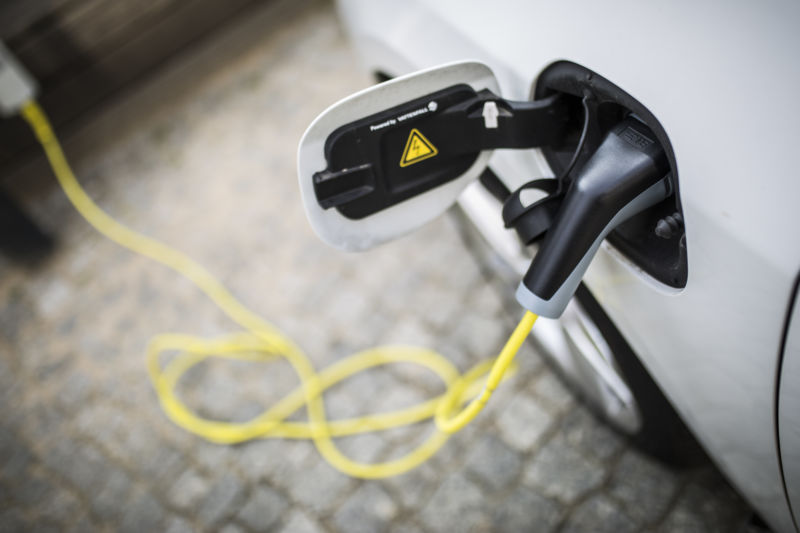
The end of 2019 saw a bunch of headlines proclaiming that it was a huge year for the electric vehicle. Yet more declare that actually, 2020 will be the year the EV really takes off. It’s true there are now more EVs; plug-in hybrid ones, battery ones, and even hydrogen fuel cell EVs in a range of shapes, sizes, and prices, and five of them made it into my list of the 10 best things I drove last year. When the numbers for 2019’s plug-in EV sales are complete, we expect more EVs to have been sold in 2019 than any year before, even if total new car sales in the US have dropped.
Still, let’s not get ahead of ourselves; EVs might be outselling manual transmissions by nearly 2:1, but they still account for little more than a rounding error in the context of ~17 million new car and truck sales. If that has you depressed, take heart that the trend for EV sales is moving in the right direction. And it’s a trend that is starting to worry some of the states. That’s because the US has traditionally paid for the upkeep of its roads via direct taxation of gasoline and diesel fuel, which means that as our fleet becomes more fuel-efficient, that revenue will drop in relation to the total number of vehicle miles traveled each year.
Utah tries something new
As a result, some states are starting to grapple with the problem of how to get drivers to pay for the roads they use in cars that use less or even no gas per mile. At the start of this year, Utah has begun a pilot Road Usage Charge program, coupled to an increase in registration fees for alternative fuel vehicles. Assuming a state gas tax of 30c/gallon and 15,542 miles/year driven, Utah says it collects $777 a year from a 6mpg heavy truck, $311 from a pickup getting 15mpg, $187 from a 25mpg sedan, $93 from a 50mpg hybrid, and nothing from anyone driving a battery EV.
So in 2020, Utah is increasing vehicle registration fees. In 2019, registering a BEV in Utah would cost $60; in 2020 that will be $90, increasing to $120 in 2021. PHEV fees were $26 in 2019, increasing to $39 this year and $52 in 2021, and not-plug-in hybrid fees have gone from $10 to $15, increasing to $20 next year. An extra $30 a year—or even $60 a year—is pretty small in the grand scheme of things, particularly considering how much cheaper an EV is to run.
But Utahns with EVs have an alternative. Instead of paying that flat fee, they can enroll in the pilot program that involves fitting a telematics device to the car. The device tracks the actual number of miles driven on Utah’s roads. These are billed at a rate of 1.5c/mile, but only until the total equals whatever that year’s registration fee for the vehicle would have been; participating in the pilot means you could pay less than you would otherwise, but Utah’s Department of Transportation says that participants would not ever be charged more than that year’s registration fee. The data will be collected by a contractor called Emovis, which operates toll roads around the US.
“This is just one of the avenues we’re investigating for the future because with all the alternative-fuel vehicles, there is going to come a time when the gas tax is not going to be able to fund transportation like it has for the past 100 years,” said UDOT spokesperson John Gleason.
Oregon has been at this for a while
Oregon is another state that has been working on solving this problem for a while now—this Ars forum thread about the topic is exactly 11 years old today, in fact. In 2020, Oregon is increasing its state gas tax by 2c/gallon, and like Utah, it’s also increasing vehicle registration fees. Now, fees for registering your car in Oregon will depend on how many miles per gallon your car gets; a two-year registration for something that gets below 19mpg will cost $122, rising to $132 for a vehicle between 20–39mpg, then $152 for a vehicle that gets 40mpg or better, and $306 for a BEV.
Like Utah, there is a way to avoid some of those increases, as long as you own a 40+mpg vehicle or a BEV. By enrolling in OReGO—which began in 2015 as a pilot for 5,000 road users but which is now being expanded—you can cut that two-year fee to $86 for a 40+mpg vehicle or a BEV. Like Utah’s system, OReGo also requires participants fit their car with a telematics device to track the actual miles they travel on the state’s roads. Those are billed at 1.8c/mile—Oregon evidently decided its roads are worth a little more than those in Utah—but you can then get credited for any fuel tax you pay in the state. (Obviously, this only applies to hybrid and PHEV drivers.)
Knowing Ars Technica’s audience, I’m pretty sure that some of you will be horrified by these approaches. After all, it means surrendering yet more personal data to private companies and local authorities. And it’s fair to say that support is not universal for these approaches, particularly as the data unequivocally shows that a reduction in subsidies for EVs directly correlates with fewer EVs sold. What’s more, state gas taxes aren’t the only gas taxes we pay—the federal gas tax will also need tackling at some point in the future. And with such low market penetration, the problem of declining gas tax revenues isn’t much of a problem right now. But it will be, so it’s probably wise for people to think about how to solve that while we have time.
https://arstechnica.com/?p=1638439

